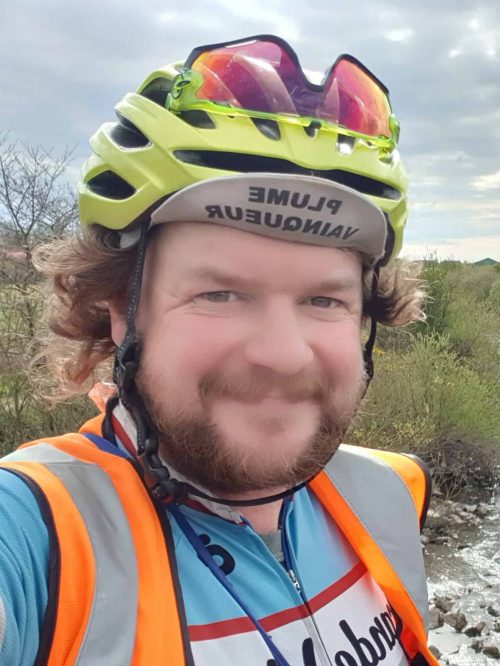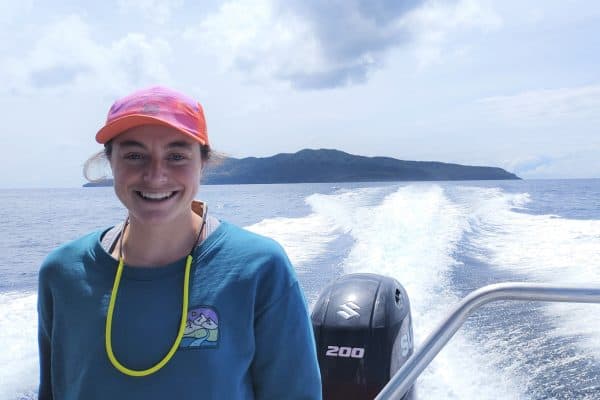Vulnerability of Power Systems Exposed to Volcanic Hazards
I am from Tokoroa, New Zealand, and after attending Strathmore Primary, Tainui Intermediate and Tokoroa High School, I studied Electrical Engineering specialising in power systems at the University of Canterbury, where I once again find myself over 15 years later.
After university I worked for Transpower for over five years, first working through their engineering graduate programme and then as a project manager. After moving to the UK I worked for Mitsubishi Electric, in transmission & distribution, before making a side-step in 2013 to work in railways on the High Speed Two (HS2) project (I tell people to have a look at the Wikipedia page: https://en.wikipedia.org/wiki/High_Speed_2). For the last few years I was the Head of Power and Mechanical & Electrical Engineering for HS2 Ltd and in summary, I learnt a lot about railways, tunnels and very-large-scale infrastructure projects.
During my time at HS2 I was very lucky to undertake an MSc in Railway Systems Engineering and Integration at the University of Birmingham. This gave me push to start thinking about going back to full-time study, which in turn led to me applying for the Resilience Challenge scholarship.
I started studying for my PhD in Christchurch at the end of 2021 under the supervision of Andrew Lapthorn, Neville Watson and Tom Wilson.
My body is still adjusting to moving back to New Zealand, but I do enjoy cycling. I rode all five Monuments of Cycling in 2019 (not professionally…) and more recently rode from Land’s End to John O’Groats with the North Coast 500 thrown in. I also do a bit of swimming and running and have enjoyed some golf again since being back. My music outlet takes various forms these days – talk to me about Rinse FM, Erased Tapes, Joe Goddard, and now, Pulzar FM.
My Project
Power systems are a key enabler for society generally and are a critical lifeline after and during a natural hazard event. I’m looking specifically at how volcanic hazards impact power systems. Developing our understanding of how power systems are vulnerable to volcanic hazards will allow us to keep society running during and after events which we may not have had to deal with before. I’ll be using the Taranaki region as a primary case-study area.
I’m thinking of my project in three main areas, the first of which will involve investigating the intersection between power systems and volcanic & natural hazards, considering the future outlook in New Zealand and globally. I’ll also be focusing on assessing the vulnerability of power systems exposed to volcanic hazards by considering their constituent parts and the impact of the hazards. Previous work has given some key metrics to let us assess vulnerability of some key components and I’ll be seeing how we might include and categorise more power system plants, equipment, processes, and people.
Once there is an appropriate understanding of vulnerability, I’ll be investigating the power system’s response in more detail, including its pre-event resilience, its response during an event, and how it recovers. This will allow observation of outcomes for various hazard exposures and the effects of applied mitigations and strategies.
Next Steps
A common theme throughout the project will be identifying actionable mitigations to safeguard power systems against volcanic hazards. I’ll be using my experience to make sure any proposals can be implemented within the appropriate sector and even helping implement them if I can. These activities can’t be considered in isolation, both from multi-hazard and multi-infrastructure perspectives, so making sure cross discipline thinking is considered throughout it also a key aim.
In the bigger picture I see this work feeding into a number of areas covering how we consider resilience of, and therefore our reliance on, power systems and infrastructure generally. We have considerable societal, geophysical, environmental and technological challenges to overcome and these all interact—including in ways that may not yet be apparent. I’ll be using my background to take an infrastructure centric approach to understanding this interaction and provide meaningful contributions to our understanding of an implementation of resilient power systems.




